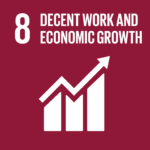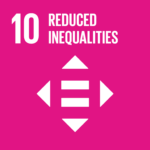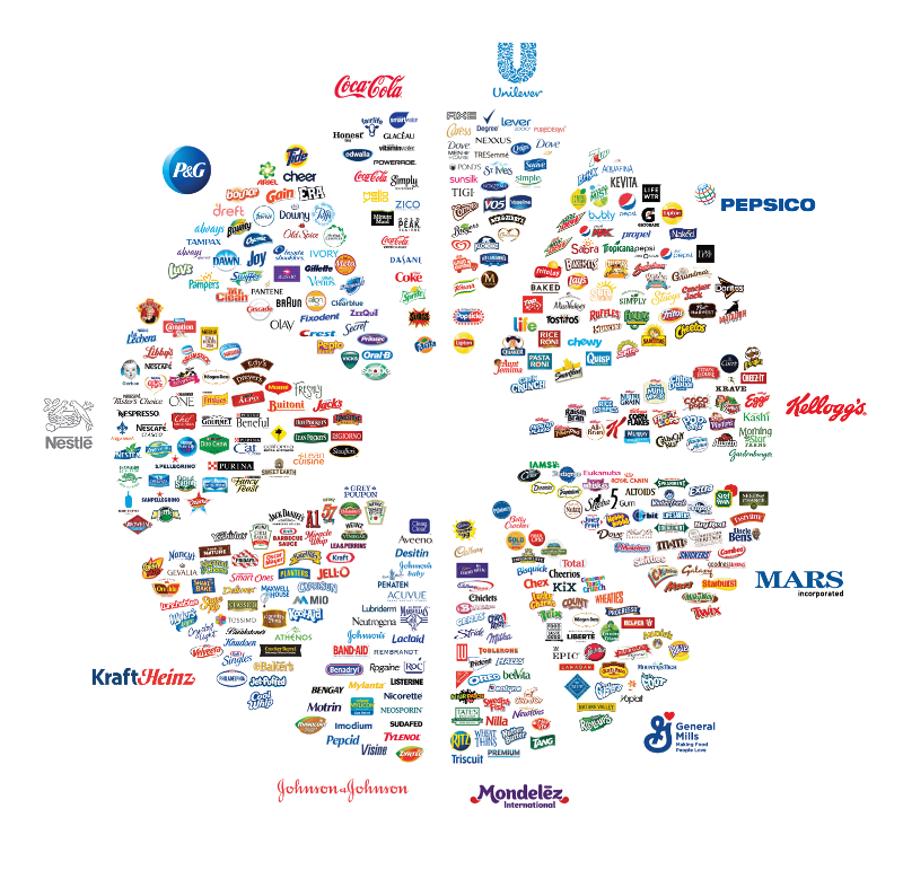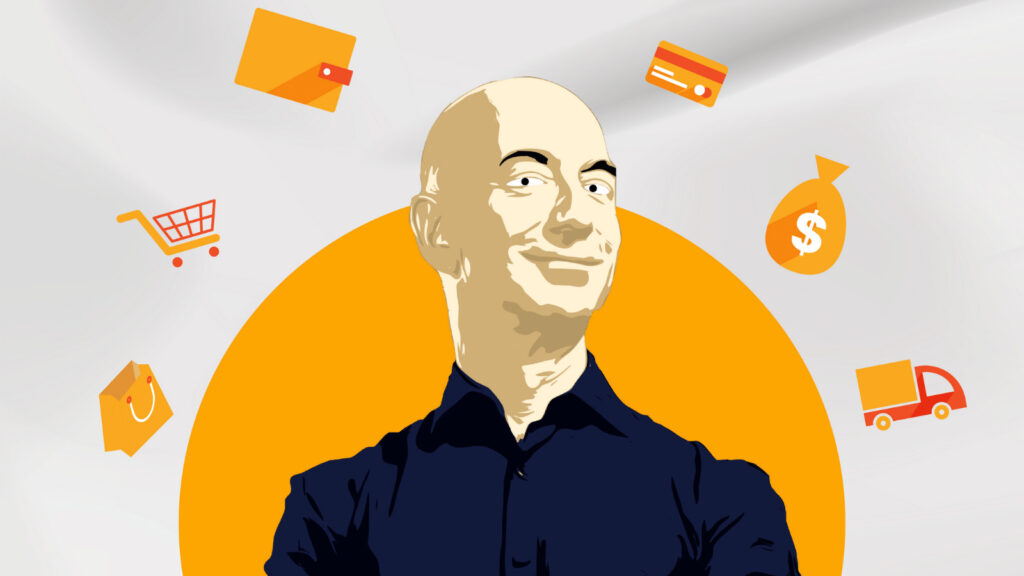Why it matters that Jeff Bezos and other billionaires are preparing to leave the planet ?
Previously I talked about how many environmentally conscious products can be pretty pricey, and not everyone can afford an eco-friendly lifestyle. This is why it’s challenging for many of us common folk to actually make an impact, especially when alone. There is a lot of conversation to be made on how the “green” movement tends to gate-keep those with similar interests and, in turn, separate us—making us weaker. But I want to focus on one question, “why us?”
RELEVANT SUSTAINABLE GOALS



NEOLIBERAL CAPITALISM AND THE POWER IMBALANCE
When fighting for a good cause, it is also imperative for us to keep our privileges in check, as not only will it help us understand the nuances of different issues, but we can also utilize said privileges to propel our movement even further. For example, a study by Nielsen in 2015 found that 60% of consumers would pay more for products from sustainable brands, a number that has risen from the previous years. However, people who need to buy from these outlets understandably need it and are simply unable to afford more environmentally friendly options. Not to mention, many local brands have yet to be plus-size friendly and therefore create yet another barrier of inaccessibility.
Because it isn’t middle-class and lower groups keeping these fast-fashion industries afloat, nor is it small businesses or farmers opening holes in the ozone layer, but the rich and privileged. Consumerism x capitalism is our power couple when it comes to ruining the environment, but it doesn’t necessarily benefit the lower-income individuals.
In a report by Oxfam International between 1990 and 2015, the wealthiest 10$ of the population contributed to almost half (52%) of all emissions emitted to the atmosphere. This research found that the wealthiest 1% of the population was responsible for 15% of all emissions, which is more than all of EU residents combined and more than double the lowest half of mankind (7%).
Further cementing the moral (though not legally-obligated) act the privileged should do is highlighted in this article from CBS News, “the wealthiest 1% would have to lower their present emissions by at least a factor of 30, while per capita emissions of the poorest 50% might grow by roughly three times their current levels on average,” For the wealthiest persons, this equates to a 97 percent decrease in carbon emissions. And yet…
BILLIONAIRES, GOD COMPLEX & THEIR SPACE RACE
On Tuesday 20th July, While the ret of humanity is suffering from prolonged pandemics and climate crisis, Amazon Founder Jeff Bezos completed his foray into space after launching from a remote area of West Texas on his Blue Origin rocket along with three crew mates. The first billionaire was Virgin group founder, Richard Branson, who took Virgin Galactic’s VSS Unity to space abroad. Another billionaire who will follow the leads of Bezos and Branson is Tesla CEO, Elon Mush, though there is no firm date for his flight.
While some people praise and worship billionaires for their successful space hobby, It is evident that not everyone is so excited about it. After all, these vanity projects were fuelled by the massive wealth collected from tax breaks, wage stagnation, and other long-standing societal issues tied to income inequality and inequity. This was confirmed by Jeff Bezos during a news conference after his spaceflight :
I also want to thank every Amazon employee and every Amazon customer because you guys paid for all of this
Jeff Bezos
How rich. A fact sheet made by the Institute for Local Self-Reliance (ILSR) and Jobs with Justice (JWJ) in 2017 brought to light the numerous issues in Amazon’s mistreatment towards its employees, which included unfairly low wages, unreliable employment, horrible work conditions, all while the corporations earning goes most to the higher-ups. A state that has only worsen for the employees now that death looms near thanks to COVID. I don’t know about you, but I can’t imagine working in such conditions and still think, “well, golly, I sure am glad I can send my loving employer to space thanks to my low incentive.”
The massive wealth of the ultra-rich is collected from tax breaks, wage stagnation, and other long-standing societal issues tied to income inequality and inequity. Simply put, it makes zero sense that the world’s richest 1% have more than twice as much wealth as 6.9 billion people, or that almost half of humanity is living on less than 5.50 USD per day, and yet here we are. Moreover, the covid-19 pandemic has further amplified the extreme inequality over a roughly seven-month period starting in mid-March 2020; America’s 614 billionaires grew their net worth by a collective $931 billion.
The Covid-19 pandemic has proven to the world that predatory capitalism has gotten too toxic that its harm to everyday citizens far outweighs any benefits that ever existed. The only people benefitting from capitalism are the 1% wealthiest on the planet. The rest of us fight over the coin that tries to hold together a climate destroyed by clear-cutting of trees and the burning of fossil fuels.
NO, IT’S NOT JUST INDIVIDUALS
According to Break Free From Plastic (BFFP)’s Brand Audit 2020, Coca-Cola, PepsiCo, and Nestlé have been named the most polluting companies globally for the third time in a row. In fact, the amount of plastic waste generated by Coca-Cola, 13,834 pieces across 51 countries, was more than the waste collected by PepsiCo. The annual survey was conducted by 15,000 volunteers in 55 countries, where they collected 346,494 pieces of plastic from their surrounding environment. One thing to note from these companies is that they are very, very massive, unlike many small local brands. Also, owning numerous brands at once (check these links out to see what Nestlé, Coca-Cola, and PepsiCo own).

Say you want to boycott these three companies—Coca-cola, PepsiCo, and Nestlé—because conscious consumerism taught you that the ethical option would be to avoid using their products. Which, to be fair, is good you’re doing so. But that would mean saying goodbye to the more indulgent things like KitKat, Fanta, and Doritos, to everyday items that may be a cheaper option for those who need it. Like I said, not every one of us can afford to do good, but those who can rarely do.
RADICAL EMPATHY FOR MORE EQUITABLE WORLD
With the climate deteriorating every day and social inequality widening, it is time to stop living in our bubble of ignorance and start learning what you can do as a citizen of your country and resident of this earth to set things right. To make the world a more equitable place. We have to stop thinking only of ourselves, our privilege, and our outdated ideas – where the ultra-rich call the shots and dictate who gets what, when, and how.
Having the power to make a significant change is already in and of itself a privilege that not many can have. Imagine having the ability to create so much good and not use it to do so. Instead, you see a group of billionaires living their best lives ‘thanking’ their employees while still refusing to give said employees actual liveable wages. You see companies placing their responsibilities to do better to you while being the leaders of the problem itself—child labor, animal testing, environmental destruction, you name it. The ocean on fire is not your fault; the billionaires fleeing destruction do not care about you. Look where an attitude of winning at all costs has got us. Time for accountability. Time for change.
Having the power to make a significant change is already in and of itself a privilege that not many can have. Imagine having the ability to create so much good and not use it to do so. Instead, you see a group of billionaires living their best lives ‘thanking’ their employees while still refusing to give said employees actual liveable wages. You see companies placing their responsibilities to do better to you while being the leaders of the problem itself—child labor, animal testing, environmental destruction, you name it. The ocean on fire is not your fault; the billionaires fleeing destruction do not care about you. Look where an attitude of winning at all costs has got us. Time for accountability. Time for change.



